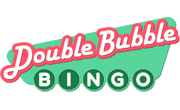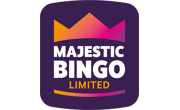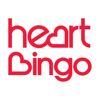
A Brief History of Bingo
The Birth of Bingo
Bingo as we know and love it today has a surprisingly long and interesting history. Its origins are thought to be in 16th century Italy, where by 1530, an Italian Lottery called “Lo Giuoco del Lotto D’Italia” was regularly and popularly played. Testament to its appeal, it is still played every Saturday in Italy today.
By 1778, a new version of Lotto had been developed in France. The playing card for this new game was divided into three horizontal and nine vertical rows. Each horizontal row had five numbered and four blank squares in a random arrangement. The vertical rows contained numbers from 1-10 in the first row, 11-20 in the second row, all the way up to 80-90 in the ninth row. Chips were numbered from 1 to 90. Players were dealt a single, unique Lotto card at the start of each game. A caller then drew a series of small wooden, numbered tokens from a cloth bag and read the numbers aloud. Players covered each number as it appeared on their card. The first player to cover a horizontal row was the winner.
By the 19th century, educational Lotto games had become popular. A German Lotto game of the 1850s was designed to teach children their multiplication tables. Other educational Lotto games included ‘Spelling Lotto,’ ‘Animal Lotto,’ and ‘Historical Lotto’.
In 1838, English archaeologist John Stephens described the game “La Lotteria”, which he observed during his travels in Mexico. Players covered up the numbers 1-90 on a large sheet with pieces of corn as numbered balls were drawn from a bag, and the first person to cover a whole row was the winner. This is thought to be one of the earliest recorded games of what is now commonly recognised as bingo.
Bingo in the New World
When the game reached North America in 1929, it became known as “beano”. It was a country fair game where a dealer would select numbered discs from a cigar box and players would mark their cards with beans – hence the winning call of “beano”. Hugh J Ward popularised the game across Pittsburgh and West Pennsylvania, copyrighting it and eventually publishing a rulebook in 1933.
It was played at a carnival near Atlanta, Georgia, in December 1929, where it was witnessed by someone who would go on to make the game bigger than it had ever been. New York toy salesman Edwin Lowe decided to capitalise on the game and renamed it “bingo”, allegedly after he overheard someone accidentally yell “bingo!” instead of “beano!” Lowe produced two versions of the game – one with 12 cards, which he sold for $1, and one with 24 cards, which he sold for $2.
A Catholic priest from Pennsylvania then approached Lowe about using bingo as a means of raising church funds – a parishioner had suggested the idea, but it was found that the games produced multiple winners, which resulted in a loss of money for the church. Lowe surmised that this was due to the limited number of combinations that could be produced, and so he hired a Columbia University maths professor, Carl Leffler, to help him increase the number of combinations in bingo cards. Leffler helped Lowe to produce about 6000 cards, which became increasingly difficult with every card produced – Leffler eventually ended up charging Lowe approximately $100 for each card he completed. But despite his high prices, it was Leffler that ultimately paid more for the card production – it is said that the hard work eventually drove him insane.
When bingo started being played in churches it became increasingly popular, and soon Lowe found that it was hard to keep up with demand – and he received so many letters regarding bingo game set-up that he published the first bingo “Instruction Manual”, as well as a monthly newsletter named The Blotter, which reached over 37,000 subscribers – bingo was booming. By 1934 it was estimated that there were over 10,000 bingo games being played every week, and Lowe saw the playthrough of what remains the biggest bingo game in history – a game featuring over 60,000 players (with 10,000 having to be turned away) which was hosted at New York’s Teaneck Armoury. The game was so huge that multiple cars were given away as prizes!
By the 1940s, bingo had become well-known across America, enjoying the reputation of being fun and easy-going. It also had a charitable connection, with games often being staged by churches or charity organisations.
Bingo Spreads to the UK
Bingo flourished in the UK, with many commercial bingo halls being established rapidly across the country. Bingo went from strength to strength, largely thanks to it reviving the interest in more public forms of entertainment that television had encouraged people to shift their attention away from. Many dance halls, theatres and cinemas that had closed were turned into bingo halls, where people could have fun, socialise and enjoy a few rounds. The UK is also the home of many famous bingo calls and nicknames – such as “two fat ladies”! So many of the bingo calls have military-sounding names thanks to the fact that it was a popular game among British soldiers.
This trend continued until the end of the 1980s, with the early 1990s seeing a decline in the number of UK bingo halls. These closures have been blamed on high taxes, the smoking ban and the rise in online gambling. But with national games that link bingo halls across the country, and the branching out of high street brands to the internet (Mecca and Gala being two of the leaders in this area – Gala, in fact, has over 130 bingo halls up and down the UK), bingo refuses to leave British entertainment.
The Move Online
However, the fortunes of the game have improved dramatically over the last 10 years with the emergence of online bingo. The first online version was introduced in 1996, and has since become a major worldwide phenomena. With the spread of the internet and the increased availability of high-speed broadband, online bingo took off in the mid-2000s. Think Bingo launched in 2004, becoming the UK’s first standalone bingo site, and was to be followed by many more brands as the game spread further. The game has become one of the most widely-played games on the internet, with hundreds of bingo sites connecting players from all round the UK and other countries. It’s grown so popular that it can even be found on social media sites such as Facebook.
Online bingo still seeks to give players the experience that might be missed from not playing in a bingo hall, for example by offering games that use live bingo callers and webcams in order to emulate the bingo hall experience.
Current estimates suggest that there are at least 3 million UK players of online bingo, drawn the possibility of big prizes, great sign up bonuses and fun games organised by the chat hosts.
A Full House Future?
The majority of online bingo players are female, with estimates suggesting that on the whole just 20% are men. Because of the prevalence of chat rooms, we can assume that this is a direct link to the fact that there are more female players, and women are generally more sociable by nature.
Therefore to ensure a long-term future, online bingo will either have to rely on maintaining the female interest, or perhaps try to plug into the male market with targeted techniques.
There is certainly a growing diversity of technologies used to play bingo online, with people using mobiles, tablets and PCs to enjoy their gaming. So perhaps with the ever increasing ease with which online bingo can be played, there is no need for worry over its future.
However, with the ASA clamping down on “childish” designs for bingo sites and slots games, it’s likely that bingo sites as we know them will keep changing their designs and look very different in a few years! 2017 has already seen the disappearance of “kid-friendly” slots games such as Fluffy Favourites from the front pages of bingo sites, and cartoon mascots such as Robin Hood at Robin Hood Bingo have been replaced with live-action counterparts, or have just been deleted completely.
Tax laws getting stricter on bingo sites is also something to think about when considering the future of online bingo. Many bingo sites have managed to skirt around the taxes on bonus cash by offering bingo tickets for select games instead, so it’s likely that we’ll see more and more of this kind of offer as deposit bonuses become too expensive for sites to justify. It’s likely we’ll also see a crackdown on no deposit bonuses too, as these also face taxes, but more and more sites are starting to implement no wagering requirements – meaning that you won’t have to play through your money multiple times in order to withdraw your winnings.
So while bingo seems like it’s here to stay, with bingo sites continuing to open, it’s likely we’ll see more of a change in how bonuses are distributed and how the sites are designed in order to keep them compliant with advertising regulations. But don’t think it’s going anywhere for now – with the Rank Group opening chains such as Luda Bingo on the high street and with new sites opening every month or so, it looks like it will take a lot more than stricter regulations and taxes to keep this game from booming.
Sources:
- strangelife.com – Bingohist
- The Encyclopedia of Play in Today’s Society, ed. by Rodney P. Carlisle.
- wikipedia.org – Bingo (United Kingdom)
- strangelife.com – bingohist
- butlersbingo.com – History of bingo
- wikipedia.org – List of British bingo nicknames
- manchestereveningnews.co.uk – History bingo look one worlds
- wikipedia.org – Online bingo
- mirror.co.uk – Profile bingo player
- thetimes.co.uk – Gambling sites forced to stop luring children
- eyesdownbingo.com – Online bingo bonuses tax



























